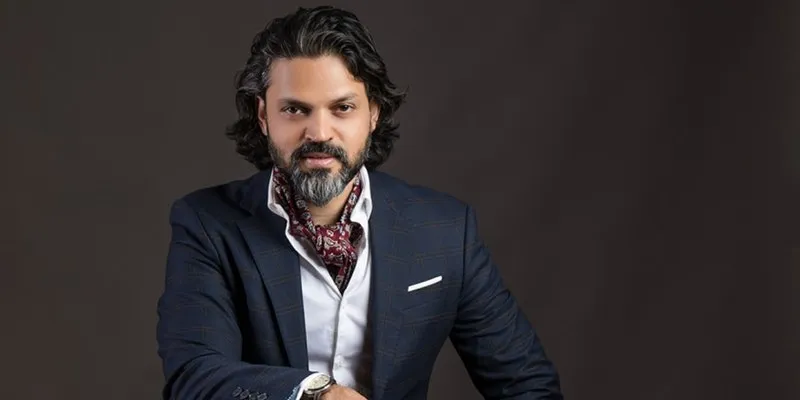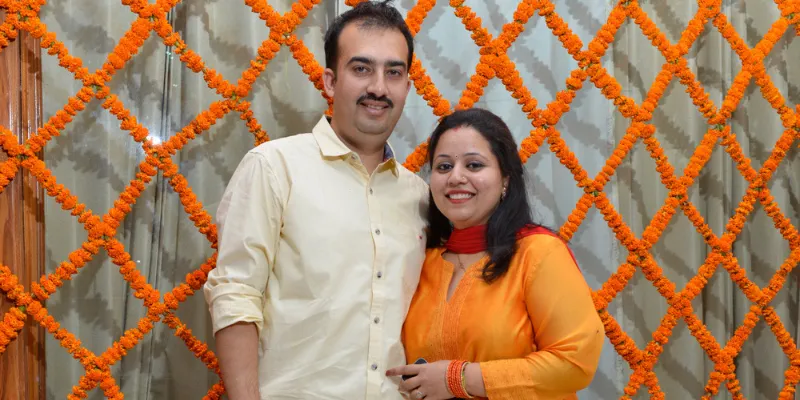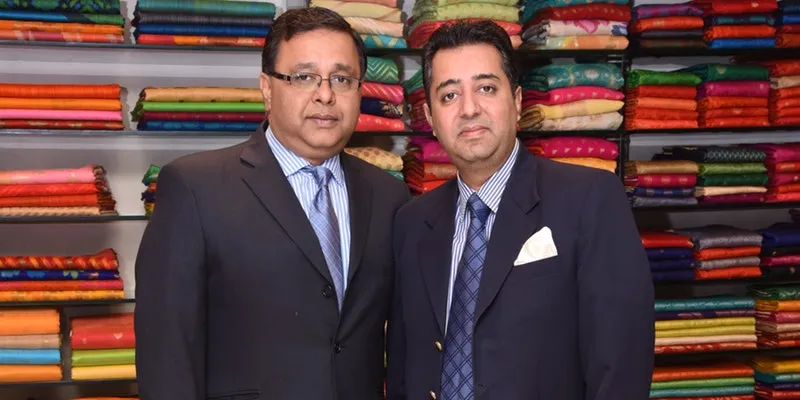These 5 companies’ ethnic wear ranges are winning the market despite competition from designer brands
Major Indian brands like Manyavar-Mohey, Meena Bazaar, and Neeru’s are dominating the Rs 35,000 crore ethnic wear industry in India. However, these companies are also giving a tough fight to these leading names.
Even as we embrace and adopt the suits, ties, dresses, and pants, Indian ethnic wear still dominates when it comes to special occasions, lending an oomph factor. Many also associate it with grace, elegance, and poise. From sarees and suits to lehengas and kurtas, the embroideries and embellishments in these outfits can make women in India and abroad go gaga.
Big brands like Manyavar-Mohey, Meena Bazaar, and Neeru’s are largely dominating the Rs 35,000 crore occasion wear (ethnic wear) industry in India. However, a few other companies in India have also entered this segment, and are giving a tough fight to these leading names.
Here’s a list of five such ethnic wear brands.
Koskii

Umar Akhter, CEO, Koskii
Umar Akhter was just 16 when hard times fell upon his father Saifulla Akhter, a Bengaluru-based distributor, who would buy sarees from manufacturers to sell to retailers.
In a conversation with SMBStory, Umar, eldest of six children, says,
“We used to live in a small house and our father used to do business from home as we had no shop. I remember after coming back from school, I used to go to the market with my father on the back of his scooter, carrying a huge box of sarees.”
But, one bad day changed their lives.
Due to some issues in Hyderabad, the city’s retailers shut shop and Saifulla’s payment of around Rs 8 lakh was stuck.
“We didn’t have money to pay the debt because the stock was sold in credit to Hyderabad retailers and the people whom we took credit began harassing us,” Umar adds.
It was a tough time for Umar and his family and they refused to continue the wholesale business on credit again.
One day, they heard that a small businessman from Kolar was selling his shop at a meagre amount and inspiration struck.
However, they needed one crucial ingredient – funds.
With the help of close friends and family, Saifulla managed to collect the amount to make the initial deposit to rent out the shop.
But the road ahead was a difficult one.
In 1991, at the age of 16, Umar began his entrepreneurial journey. He continued studying but didn’t attend school regularly and just went to give exams. As he was the only person responsible for the operations of the business, he had to travel across the country to collect saree stocks.
He recalls, “When we rented the shop, we retained its old name ‘Mina Bazaar’. The journey started really slow but in a few months, we started making Rs 1,000 daily, which helped our family make ends meet.”
Now, in a span of almost 20 years, Umar built Koskii, an ethnic wear brand that showcases lehengas (which is its main range), sarees, dresses, gowns, fabrics, and more. After steady growth over eight years, in 2019 the company raked in Rs 35 crore revenue and plans to mark Rs 50 crore this financial year, all this while being consistently profitable.
Odhni

Puneet Jain and Yatin Jain, Directors, Odhni
In 1999, willing to do something different from an already existing family business and observing the gap in the Indian fashion market, Anju and Shashi launched Odhni, a women ethnic wear brand.
In an interaction with SMBStory Yatin Jain (37), Director of Odhni, says,
“My mother and my taiji (aunt) started from a small 500-sqft saree retailing store. They wanted to step out of the house and use their time and talent, and my father supported them. He poured in Rs 15 lakh from his savings and Odhni was started.”
Odhni manufactures and sells ethnic women garments including suits, sarees, gowns, Indo-Western kurtis, and accessories. Its flagship store, covering an area of 20,000-sqft is located in Pitampura, Delhi, and is one of the largest retail stores of women apparel in north India. The company rakes a turnover of Rs 80 crore.
Bharatsthali

Pulkit Gogna and Sumit Gogna, Cofounders, Bharatsthali
Leaving their well-established family business, Sumati and Pulkit Gogna started Bharatsthali.com in late 2017 with a capital of Rs 40 lakh to revive pure silk and kanjivaram sarees, which seems to be close to being forgotten in this age of slide-on-move-on clothing.
Realising the huge potential of the Indian handloom industry, which in recent years has gained much momentum among urban customers, this husband-wife duo started this venture to help people retain traditions.
The Chandigarh-based business is a fair trade marketplace for sarees it sources directly from artists and artisanal communities. From Kanchipuram suburbs for Kanjivaram sarees to Pollachi in Coimbatore for Pollachi sarees, the couple also travels to Bhagalpur and Madhubani villages in Bihar and Banaras for Banarasi sarees. Pulkit says,
“Depending on the motifs, the intricacy of zari work and silk threads, a handloom saree can take from 10 to 50 days to prepare. So, we have partnered with over 50 looms to fulfil the demand of at least 150 premium silk sarees in a month with us.”
Bharatsthali silk sarees come with Silk Mark India label, which is the benchmark of natural and authentic silk and an important quality assurance checkpoint, that comes handy when you plan to keep a heritage Banarasi or Kanjivaram saree for posterity.
The company records a turnover of more than Rs 20 lakh receiving approx 400-450 saree orders every month.
Greenways

Akshay Jain and Mayank Jain, Managing Partners at Greenways
Connaught Place is one of the largest financial, commercial, and business centres in New Delhi and the go-to destination for shoppers. This bustling area in the national capital has never failed to surprise and please, but it didn’t all happen in just a day.
It has a legacy dating back to the British era.
And while most of India’s famous brands vie for a coveted spot in this market, claimed a spot for itself at Connaught Place in 1942. What started as a wool knitting shop by AC Jain and his two brothers has now transformed into a 1,400 sq ft store with a wide range of women’s ethnic wear. Akshay Jain (44), AC Jain’s son and Managing Partner of Greenways, says,
“My father started the business along with his two brothers and used to deal in pure knit wool and imported wool. They ran this business for seven years and gradually included a range of women’s ethnic wear, including sarees and suits. For the last 75 years, we have evolved in this retail industry, which is set to cross the $1.7 trillion mark by 2020.”
Greenways has a wide variety of women’s ethnic wear designs, sourced from different parts of the country, including Gujarat, Andhra Pradesh, Telangana, Karnataka, and Tamil Nadu. From Banarasi, Paithani, to kanjivaram and bandhani, the company has a wide range of collection in a variety of fabrics.
The collection across the four stores in Delhi combines international trends and contemporary designs in a creative manner to bring out elegance and style. It also draws inspiration from the textile heritage that India boasts of. The weaving and designing are done at the weaver’s facility. As a brand, it helps the artisans in providing trending designs.
Tjori

Mansi Gupta, Co-founder and CEO, Tjori
Born out of love for traditional handicrafts and apparel, and to cater to the global demand for Indian handcrafted products, Mansi Gupta started in 2013 in New Delhi.
“While I was studying at Wharton School of the University of Pennsylvania, I saw a huge demand for Indian handicrafts abroad. However, I couldn’t find any Indian brand to fulfil that need. There was no Indian brand to drive the Indian audience there. Hence, I thought to start something in this niche,” Mansi, 36, recalls.
In an interaction with SMBStory, she shares her entrepreneurial journey.
Today, Tjori is a multi-category, online-first artisanal ethnic brand that includes apparel, wellness, home, and mother and child products. The brand focusses on handmade products and the goodness of traditional Indian ingredients.
Tjori began on a small whiteboard with a huge foresight for the brand, an opportunity which was explored due to the lack of knowledge about the traditional and heritage handicrafts of India on a global platform. The inspiration was Zara, which started from a small boutique in Spain and now has taken over the world of fashion.
The company was started with my savings of Rs 10 lakh and now clocks an annual turnover of Rs 50 crore.
(Edited by Saheli Sen Gupta)








